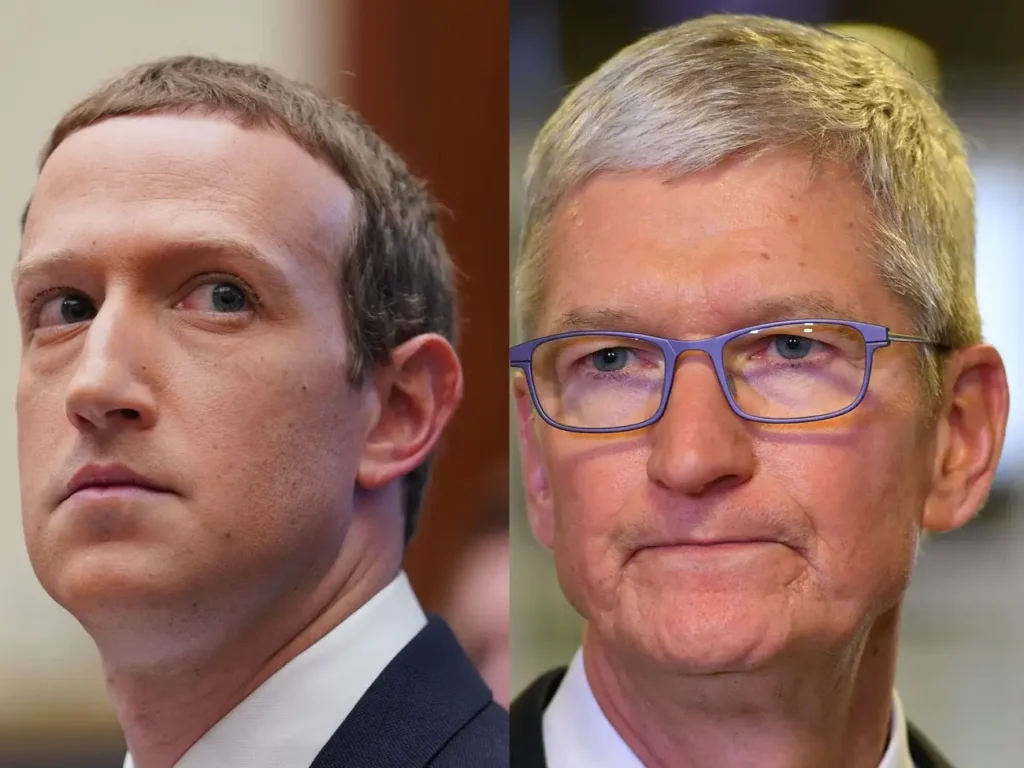In the race to dominate the future, every major tech company is betting big on artificial intelligence. But while they all agree AI is the future, they are deeply, philosophically divided on what that future should look like. Nowhere is this clearer than in the starkly different visions of Meta and Apple.
On one side, you have Meta, pouring billions into the quest for an AI that is demonstrably smarter than any human—a true Artificial General Intelligence (AGI), or even a superintelligence. On the other, you have Apple, the famously pragmatic giant, which effectively dismisses the current chase for AGI as “science fiction” and a distraction from what’s truly useful.
This isn’t just an academic debate; it’s a fundamental clash of strategies that will define the technology we use for the next decade. So, who’s chasing a dream, and who’s being a realist? Let’s break it down.
Full-Throttle Towards Superintelligence
Meta, under the technical guidance of AI luminaries like Yann LeCun, is making no secret of its ambition. Their goal is not just to build a better chatbot; it’s to create a foundational intelligence that surpasses human intellect. This is the stuff of sci-fi legend: an AI that can reason, learn, and improve itself recursively.
To achieve this, Meta is engaged in one of the largest capital investments in corporate history. They are buying hundreds of thousands of high-end NVIDIA H100 GPUs—at a cost of billions—to build a computing infrastructure powerful enough to train these next-generation models.
Their philosophy is clear: to solve the biggest challenges, you need an intelligence that is bigger than our own. They see the development of AGI not as a potential threat to be feared, but as a necessary and monumental step in the evolution of technology.
Practical Intelligence, Not Science Fiction
Then there’s Apple. At its recent WWDC event, the company unveiled “Apple Intelligence,” a suite of AI features that couldn’t be more different from Meta’s grand vision. Apple’s approach is personal, private, and practical.
Apple’s AI chief, John Giannandrea, has been openly skeptical of the hype surrounding AGI. In public talks and, as the source article highlights, through technical papers, Apple’s stance is that current models—which they refer to as Large Reasoning Models (LRMs)—are still incredibly limited. They point out that these AIs struggle with complex, multi-step logic and are nowhere near true human-like understanding.
Instead of chasing a god-like brain in the cloud, Apple is focusing on features that make your life easier right now: summarizing emails, creating custom emojis, and improving Siri’s ability to understand your personal context. Crucially, they are committed to doing as much of this as possible on-device, prioritizing user privacy and speed over raw, cloud-based power.
What It Means For The Products You Use
This philosophical divide directly translates to the products we get from each company.
- Meta’s approach gives us Llama—powerful, open-source models that can be used by anyone, and AI features in Instagram and Facebook that are powered by a massive, centralized intelligence.
- Apple’s approach gives us tools baked directly into our iPhones and Macs. They are less about having an open-ended conversation with a chatbot and more about making the apps you already use smarter and more efficient.
So, who has it right? The “God-builders” at Meta or the “Tool-builders” at Apple?
The truth is, both strategies are a direct reflection of each company’s DNA. Meta is a network-based company that thrives on massive data and large-scale, centralized systems. Of course they would try to build a single, all-powerful intelligence. Apple is a device-centric company that sells personal, private experiences. Of course their AI would be intimate, on-device, and context-aware.
This isn’t a simple case of one company being right and the other being wrong. It’s a high-stakes battle between two different futures for AI. Will our future be defined by interacting with a handful of massive, god-like AIs in the cloud, or by using hundreds of small, specialized AIs that live privately on our own devices?
The race is on, and the outcome will shape our relationship with technology for generations to come.


